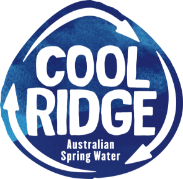Cool Ridge Carbon Neutral FAQs
What does it mean to be “carbon neutral”?
“Carbon neutrality” is achieved when net carbon emissions from a particular activity, process, or a product are reduced to zero. This means either directly reducing carbon emissions to zero or, where that is not achievable, compensating for the remainder of existing emissions by investing in offset units to achieve net zero carbon emissions (carbon neutrality).
Why are carbon emissions bad for the environment?
Carbon emissions in the atmosphere insulate our planet’s surface against the chill of space – this is known as the greenhouse effect. Human activities that emit carbon emissions, such as burning fossil fuels, enhance this warming effect. A warming atmosphere influences the variability of our climate, such as the frequency and severity of extreme weather events. *Sourced from Climate Active Member guidelines 2021
How have we achieved certified carbon neutrality for Cool Ridge products?
Asahi Beverages has undertaken work to measure eligible Cool Ridge carbon emissions, which is a projection of the 2023 calendar year. Measuring those emissions has allowed Asahi Beverages to know how much we need to invest in projects that offset eligible carbon emissions and, ultimately, achieve carbon neutral accreditation from Climate Active for Cool Ridge products.
Through Asahi’s company-wide sustainability work, it has embarked upon the journey to reduce its carbon emissions for Cool Ridge, as we seek to be less reliant on carbon credits in the future to retain carbon neutral certification for Cool Ridge products.
Who is Climate Active and what do they do?
Climate Active is a partnership between the Australian Government and Australian businesses to drive voluntary climate action. Climate Active certification is awarded to businesses, products and services that have achieved a state of net zero emissions, otherwise known as carbon neutrality.
Are all Cool Ridge products certified Carbon Neutral?
Yes, the Climate Active certification means that the Cool Ridge brand has been certified as having carbon neutral products. Therefore, all Cool Ridge products (1.5L, 1L, 750ml still & flavoured, 600ml, 350ml & 500ml Sparkling) are certified carbon neutral.
What offset projects has Asahi invested in?
Asahi, through purchasing carbon credits from South Pole, has invested in both Australian and international offset projects with a focus on water access and regeneration as listed in the below:
- Safe Community Water Supply, Rwanda: Improving health and sanitation with access to clean water. Click to find out more: Safe Community Water Supply, Rwanda
- Dispensers in Malawi: Improving lives and reducing emissions through clean water filters. Click to find out more: Malawi project
- Mainoru Fire Management Project, Australia: Reducing emissions through traditional Indigenous fire management off Katherine in the Northern Territory. Click to find out more: Mainoru Fire Management
- Jandra/Nulty Native Forest Regeneration, Australia: Restoring native forests and sequestering carbon on degraded agricultural land. Click to find out more: Jandra/Nulty
- Lakemere Human-Induced Regeneration Project: Restoring native forests and sequestering carbon on degraded agricultural land.
We’d love to hear your feedback and answer any questions you may have.
58 Queens Bridge Street,
Southbank VIC 3006
Australia: 1800 244 054
New Zealand: 0800 242 754

